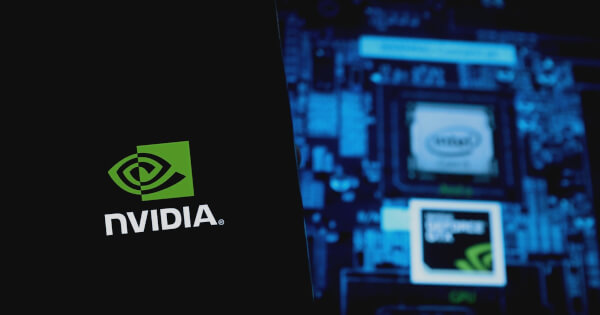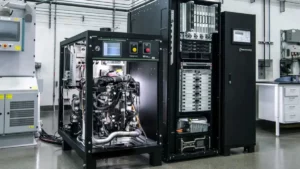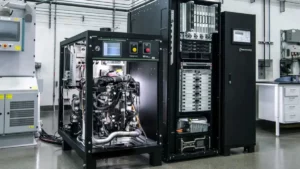
NVIDIA NeMo-Aligner Enhances Supervised Fine-Tuning with Data-Efficient Knowledge Distillation
December 18, 2024
The innovation continues in the realm of AI as NVIDIA’s latest release, NeMo-Aligner, has introduced a revolutionary methodology for enhancing supervised fine-tuning (SFT) through data-efficient knowledge distillation. This groundbreaking technology allows for the seamless transfer of knowledge from a larger teacher model to a more compact student model, accomplishing unparalleled accuracy and efficiency in neural models.
Knowledge distillation is an often-used technique in pretraining scenarios but has been less explored in the context of supervised fine-tuning. NeMo-Aligner seeks to bridge this gap by harnessing knowledge distillation during SFT to elevate both model accuracy and efficiency. The innovative approach achieves higher accuracy than traditional SFT while utilizing a mere 70% of training steps, as demonstrated through rigorous experimentation.
The implementation of NeMo-Aligner involves a KD-logit method where the student model is trained to align with the teacher’s output logits. This “dark knowledge” provides a more detailed gradient signal by understanding the similarities and differences across classes. The process initiates preprocessing wherein the teacher model’s predictions are cached, and the student model is trained to conform to these predictions, resulting in memory savings and accelerated training periods.
Moreover, this groundbreaking approach significantly reduces the requirement for simultaneous loading of both teacher and student models, thereby conserving GPU memory. Instead, merely the top-K logits of the teacher are stored, optimizing memory utilization while maintaining comprehensive information transfer.
The empirical results reveal that experiments conducted using the Nemotron-4 15B student model and a fine-tuned Nemotron-4 340B teacher model illustrate that KD-finetuned models outperform vanilla SFT models across multiple benchmarks including HumanEval, MBPP, and MATH. Notably, the KD-finetuned model necessitates fewer training tokens while achieving superior performance across six of seven evaluation metrics. The KD approach also excels in the MMLU benchmark, which assesses a wide range of language understanding tasks, surpassing the baseline in both zero-shot and five-shot settings.
In conclusion, NVIDIA’s deployment of knowledge distillation within NeMo-Aligner showcases that this technique not only enhances model performance in data-scarce environments but also harmonizes effectively with synthetic data generation (SDG) techniques. As a result, it offers an invaluable tool for developers seeking to maximize model efficiency and precision through supervised fine-tuning.
Image Source: Shutterstock
Source: Blockchain.News


